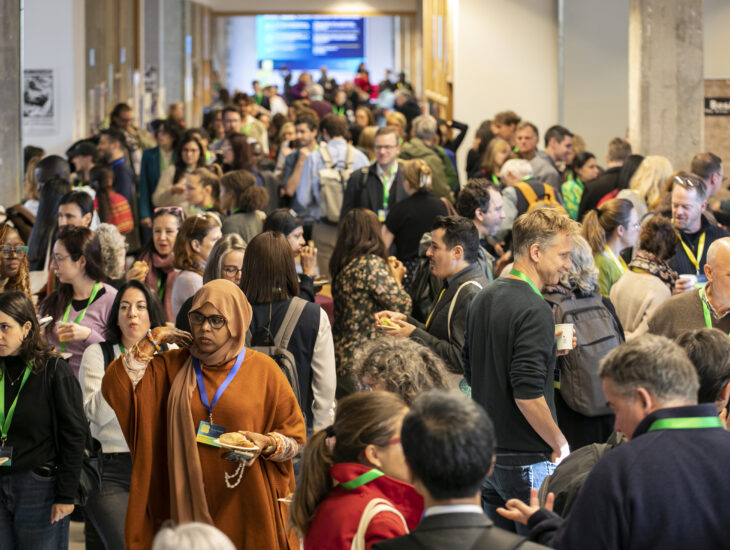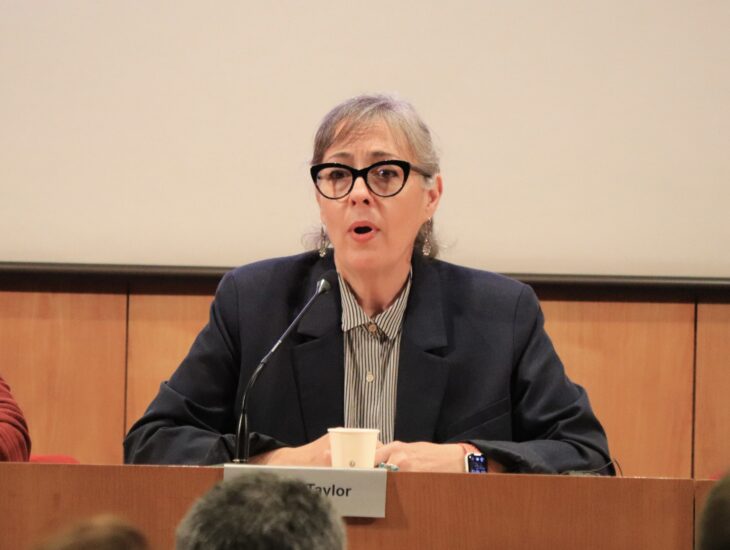For decades, the United Nations has highlighted certain days of the year to draw attention to world problems and to bring us closer to a solution. On September 21, the emphasis is on peace. This year, on its 70th anniversary, the United Nations has chosen as its theme “Partnerships for Peace – Dignity for All.” The UN Secretary-General has recalled that to build peace, the collaboration of everyone is needed: individuals, companies, governments and associations, because of the significant role they play in fostering social progress, protecting the environment and creating a more just, stable and peaceful world. And, as the UN message goes on to state, this year’s International Day of Peace comes at a moment of peril, but also of great promise, given the significance of the adoption of the new Global Goals for Sustainable Development for 2030. They will replace the Millennium Development Goals, which were bittersweet: they have resulted in substantial improvements although they have not been achieved completely around the world. So this is an interesting and suggestive moment, since the new goals explicitly incorporate objectives and milestones related to peace.
Nevertheless, this year our declaration is more combative, with a forceful title that is normative and not merely descriptive. A title that in itself intends to be a call to action: There will be no peace without coherence between words and deeds! Coherence is a recurring theme in the collective action for peace, as in the famous quote: “There is no road to peace; peace is the road”: the ends and the means must be coherent in the struggle for peace and justice. Or, as is said when talking about education for peace, coherence must be found between words and deeds because, otherwise, if words and deeds are not coherent, the hidden curriculum – the one educators and educational institutions transmit with their real procedural endeavor – ends up canceling out and wasting the transformational power of the explicit curriculum, of what is said will be done.
And this is the harrowing problem facing us on September 21: the hidden curriculum prevails over the explicit curriculum; the facts deny the words. The facts categorically show the inanity of many words. Incoherence is the norm.
Everyone surely knows what we are referring to: the humanitarian and migratory crisis resulting from the hundreds of thousands of refugees that arrive in Europe, particularly by crossing the Mediterranean, in search of asylum, of refuge. They demand the application of the Convention of 1951 and, especially, the fulfillment of the words and former actions that speak of the EU as a territory of peace, wellbeing, prosperity, the defense of human rights, of shelter and hope; a territory that promotes the free circulation of people, ideas, goods… But the actions insist on saying something else: there is no common asylum policy; many EU countries opt for the fad of building walls, refusing entry and moving people to other locations, modifying their own legislation in order to give this immorality an appearance of legitimacy. They even use tear gas against refugees coming from Africa and the Middle East.
More than half a million people have come to our shores in the course of the year. This certainly represents a management challenge, but it is also true that most of them have been received in a way that is inconsistent with the words and ideals that, after World War II, advised finding a mechanism to end the scourge of war, and led to the creation of the European communities.
And all of this is happening at a moment when we are preparing to call for the creation of synergies and alliances for peace and development to provide ourselves with a new program for 2030. At a moment when, according to recent data issued by the United Nations High Commissioner for Refugees, the world has more than 60 million refugees and displaced persons, a figure that could only be compared, in relative terms, to the number at the end of World War II. Or, in “personalized” numbers, at a time when one in every 122 people in the world is a refugee, an internally displaced person or an asylum seeker. Or when, four years after the breakout of the internal war in Syria, there are currently more internally displaced Syrians and refugees living outside the country than there are Syrian citizens who remain at home.
In this context, we must face, in terms of coherence, two contradictory pieces of news. One that is hopeful, and that fills us with joy and hope for the future: the active and direct solidarity of citizens, of many cities and their authorities, of many non-central government authorities, such as those of Catalonia and Barcelona, who have mobilized and prepared to take in people. And another one that is bad: the shameful spectacle of EU institutions, unable even to decide on how to distribute 120,000 people among member states, a figure that is far from what the UN had requested and farther still from what is needed. In addition, the institutions are not even seriously considering dealing with the structural causes of the movement of refugees or facing the second wave of the crisis; about two million refugees will have to be managed in the continent over the next few years, given the present number and the number resulting from the application of the right to reunification, which could multiply the current numbers by two or three.
And here is where, as EU citizens, our prestige is at stake. Where the hidden curriculum is destroying the example of a Union which was awarded a Nobel Prize for its contribution to peace and human rights. What is at stake is not only a humanitarian and migratory crisis, but also a crisis of dignity, coherence and identity.
September 21 is not a moment for grandiose words and great reflections on peace. A call must be made for coherence, coherence and coherence. Peace, today, means opening borders, complying with obligations of international law, and sheltering people. Today, more than ever, peace and solidarity depend on the tenderness of people and the correct course of action of institutions.
Barcelona, September 21, 2015
18.01.2015




